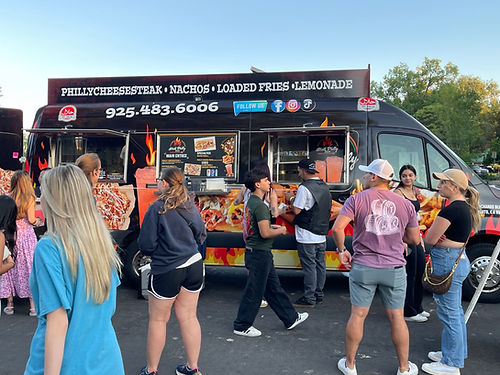Jersey City
Table of Contents
State
Basic Checklist to Start a Food Truck in Jersey City
Comply with local zoning regulations and location restrictions for operating.
Obtain a fire inspection for any cooking equipment used (e.g., grills, fryers).
Pass an initial health inspection conducted by the Jersey City Health Department.
Obtain a Mobile Food Vendor License from Jersey City Health Department.
Renew your Mobile Food Vendor License annually.
Ensure the food truck operates from a licensed commissary kitchen for food storage and preparation.
Complete a Food Safety Manager Certification (required for operators or key staff).

City Specific Permit Background for Food Trucks in Jersey City
To legally operate in Jersey City, food truck operators need to acquire several permits:
Mobile Food Vendor License: Issued by the Jersey City Health Department. This license allows food trucks to legally operate within the city. The application involves submitting proof of food safety certification, proof of passing a health inspection, and payment of any associated fees.
Food Safety Certification: Operators must complete a Food Safety Manager Certification from an accredited provider such as ServSafe. This ensures compliance with local food safety standards.
Health Inspection: A health inspection must be conducted by the Jersey City Health Department. This covers food handling, food storage, sanitation, and cleanliness of the truck, as well as verification that food is being stored and prepared in a licensed commissary kitchen.
Commissary Kitchen: Food trucks must operate out of a licensed commissary kitchen, which must meet all required health standards. This kitchen is used for food preparation, storage, and cleaning equipment.
Business License: In addition to the mobile food vendor license, a general business license may be required, depending on the type of operation.
Cost of Business Permit
$500
How Often Business Permit needs to be Renewed
Annually
Health Requirements for Food Trucks in Jersey City
Food trucks in Jersey City must meet the following health-related standards:
Inspections: Food trucks must pass an initial inspection and an annual health inspection conducted by the Jersey City Health Department. These inspections ensure compliance with food safety standards, including food storage, cleanliness, and equipment sanitation.
Food Safety Certification: One person on the food truck (typically the operator) must hold a Food Safety Manager Certification. Certification ensures that proper food handling, temperature control, and sanitation standards are met.
Truck-Specific Requirements: Food trucks must have an onboard handwashing station, meet waste disposal requirements, and maintain food storage and refrigeration in compliance with health regulations. All food preparation must occur in a licensed commissary kitchen.

Permitted Operating Hours for Food Trucks in Jersey City
Weekdays: Sunday through Thursday, mobile retail food vendors shall operate between the hours of 6:00 a.m. and 9:00 p.m.
B.
Weekends: Friday and Saturday, mobile retail food vendors shall operate between the hours of 6:00 a.m. and 11:00 p.m.
Notable Fire Requirements for Food Trucks in Jersey City
Fire inspections are required for food trucks using cooking equipment, including grills, fryers, or propane tanks. The Jersey City Fire Department conducts these inspections to ensure the food truck meets local fire safety regulations.
The truck must have fire extinguishers, fire suppression systems, and meet safety codes to prevent fire hazards. A fire safety certificate may be required for food trucks using cooking equipment.

Other Local Notes for Operating a Food Truck in Jersey City
Zoning Restrictions: Food trucks must comply with Jersey City's zoning regulations, which dictate where food trucks can operate. Trucks may not be allowed to park in certain zones or near schools and residential areas without special approval. Operators must check local zoning laws before setting up their trucks.
Special Event Permits: Food trucks that wish to operate at special events, festivals, or fairs may need additional temporary event permits. Event organizers typically handle the permitting for these occasions.
Location-based Restrictions: Jersey City has rules that regulate the specific locations where food trucks can park. These restrictions may include limiting food truck operations near bus stops, parks, or schools during specific hours.
Seasonal Events: Jersey City may impose additional permitting or zoning requirements during high-traffic times or events, such as summer festivals or public holidays.
The information on this page is collected through collaboration with local food truck owners and occasional voluntary submissions from local government and health officials. Food Truck Profit is not a government agency and cannot guarantee the accuracy or completeness of this information. All food truck owners are strongly encouraged to consult directly with local government officials, including fire and health departments, to ensure compliance with all regulations. Food Truck Profit assumes no liability for errors or omissions in the content provided.

